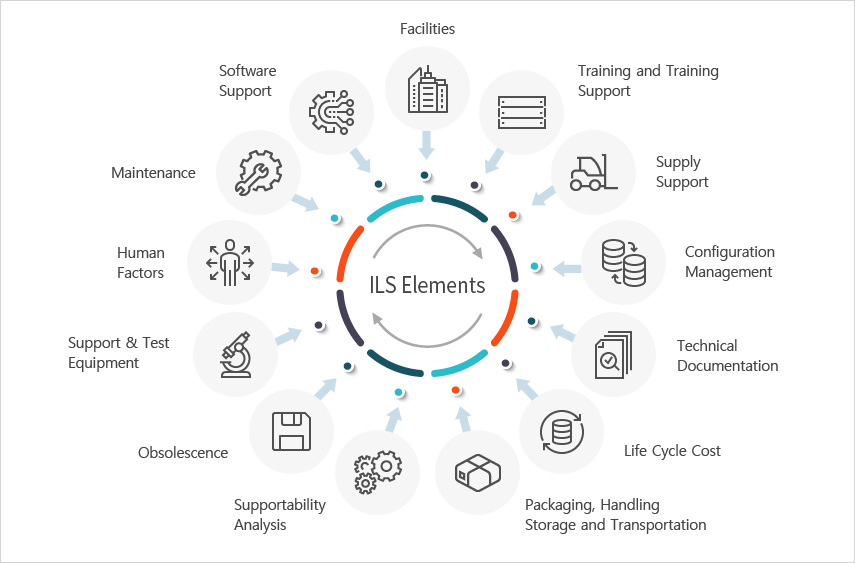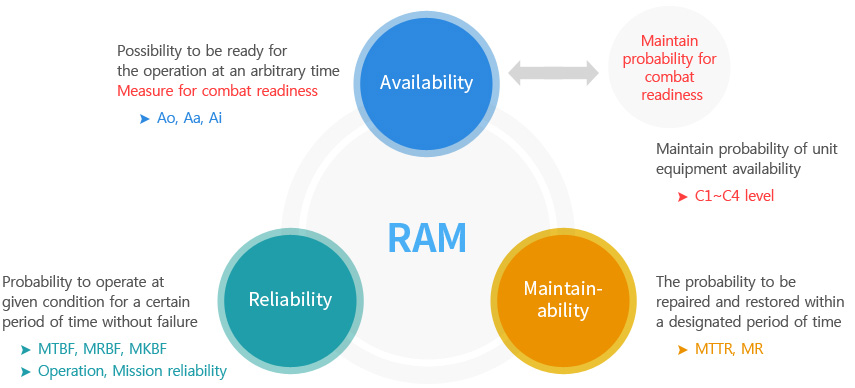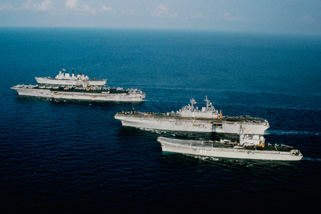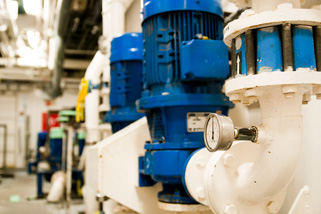Integrated Logistic Support Business

Integrated Logistic Support Business
KTOP provides a cost effective solution to maximize the operational availability of military vessels as well as commercial products and offshore plants at the lowest Life Cycle Cost by adopting a powerful methodology, called Integrated Logistic Support (ILS)
ILS is a disciplined approach to managing life cycle cost by minimizing the support system required for the product, by ensuring that supportability is given equal importance to other factors in the design process and determining the optimum affordable support requirements.
The major goals of ILS are to :
- Influence the design early enough to enable supportability, in terms of Life Cycle Cost (LCC).
- Identify and develop the support resource requirements.
- Acquire appropriate support resources.
- Ensure the required in-service support is in place and maintained at the optimum LCC.
ILS is applicable to and should be used throughout the whole life of the project as illustrated below.

KTOP provides Supportability Analysis in a way to influence the design of the support system for increase efficiency cost effectively. Supportability Analysis will identify the optimum support system resource requirements for the whole life of that product. Our specialist team use several techniques in ILS to increase level of detail, dependent upon the stage of the project.
Failure Mode Effects & Criticality Analysis
FMECA, which stands for Failure Modes Effects, and Criticality Analysis, is a method to identify and analyze:
- All potential failure modes of different parts of a system
- The impacts of these failures on the system
- How to prevent the failures, and/or reduce their effects on the system
FMECA is a methodology applied to identify, prioritize, and remove all potential failures from the system, design, or process before they get to the customer. In other words, FMECA is a proactive problem-solving technique that resolves the potential issues in a system before they even occur.
| Ⅰ | Ⅱ | Ⅲ | Ⅳ | ||
|---|---|---|---|---|---|
| Catastrophic | Critical | Marginal | Negligible | ||
| A | Frequent | 1 | 1 | 1 | 2 |
| B | Probable | 1 | 1 | 2 | 3 |
| C | Occasional | 1 | 2 | 3 | 3 |
| D | Remote | 2 | 3 | 3 | 4 |
| E | Improbable | 3 | 3 | 4 | 4 |
| F | Highly Improbable | 3 | 4 | 4 | 4 |
| G | Incredible | 4 | 4 | 4 | 4 |
| Class | Category | Definition |
|---|---|---|
| I | Catastrophic | A failure which may cause death, or loss of ship / equipment. |
| II | Critical | A failure which may cause severe injury, or major ship or system damage which may result in loss of mission. |
| III | Marginal | A failure which may cause minor injury, or minor ship or system damage which may result in a delay or loss of availability or mission degradation. |
| IV | Negligible | A failure not serious enough to cause injury, or ship or system damage, and is likely to result in only unscheduled maintenance or repair. |
Reliability Centered Maintenance (RCM) Analysis
A RCM analysis can be performed to assess the most cost effective maintenance methods. The application RCM involves a sequence of essential activities that should be undertaken to develop, establish, implement and review a through life maintenance program.
Combined analysis of RCM and FMECA avoids duplication of effort and potential inconsistency of data.
Level Of Repair Analysis (LORA)
LORA is the process of determining the most suitable maintenance level for repairing items of the product. There are two types of LORA:
- Economic LORA, which is only used where cost of repair, is the only variable.
- Non-economic LORA is used wherever there are overriding factors affecting the repair location such as existing policy, accessibility, available skills, and product size.
Reliability Availability and Maintainability (RAM)
RAM analysis activities have a highly significant influence on the design of a system for supportability. RAM program is a major contributor to ILS while not a part of the ILS plan. The overall project management plan shall recognize the working relationship between the RAM and the ILS activities and ensure that the outputs from the RAM activities required as inputs to ILS, are identified and scheduled to be available in time to allow the logistic consideration to influence the design and the trade-off processes and to ensure a close and effective sharing of data and activities between RAM and the ILS communities.


Platform
KTOP can tailor our Engineering and project management services to efficiently manage your platform business.

Equipment
KTOP provides key ILS elements and conducts ILS analysis for large and small equipment to provide cost-effective solutions to maximize the operational availability for its lifetime.


